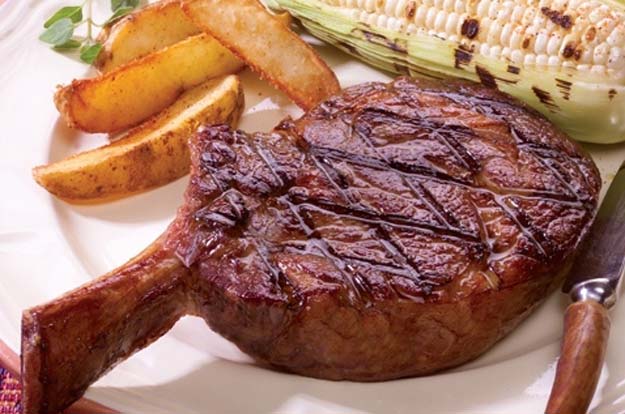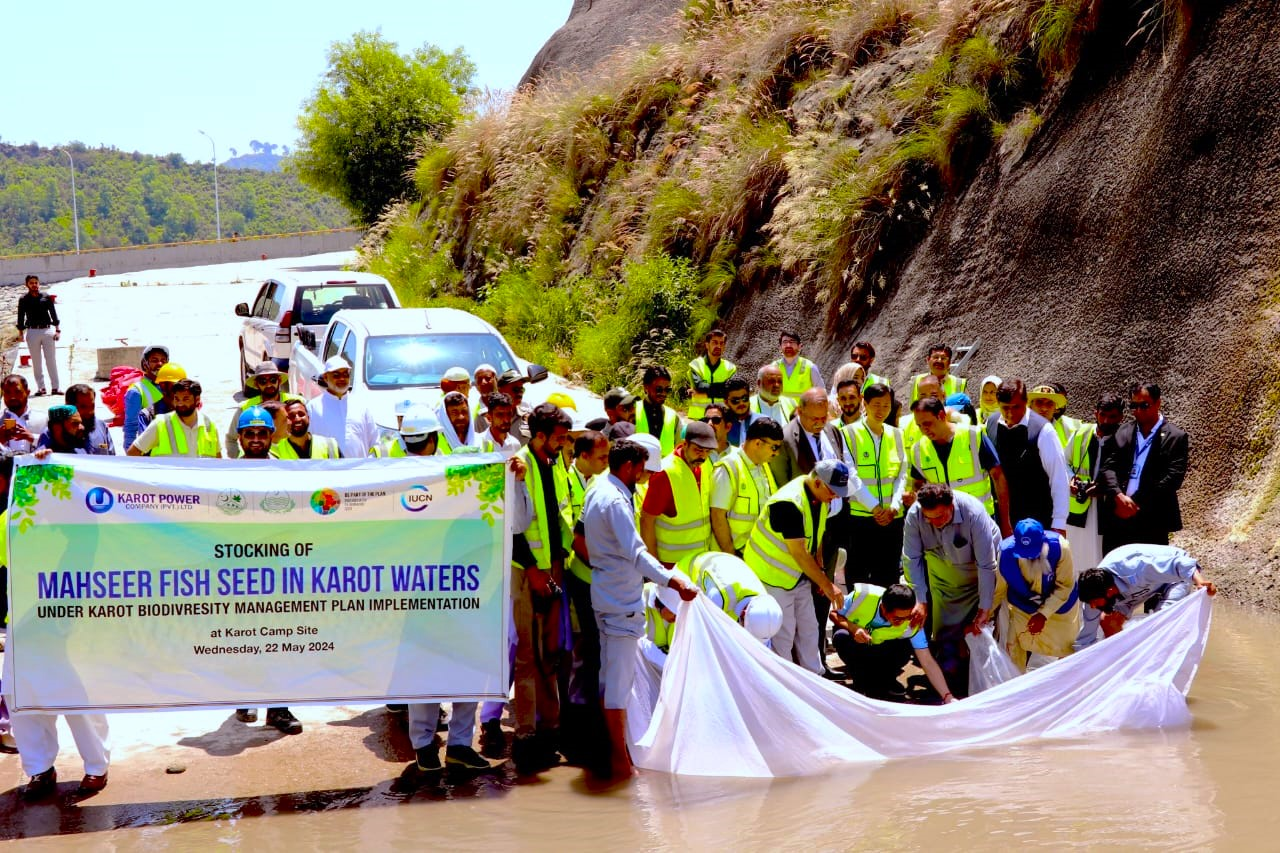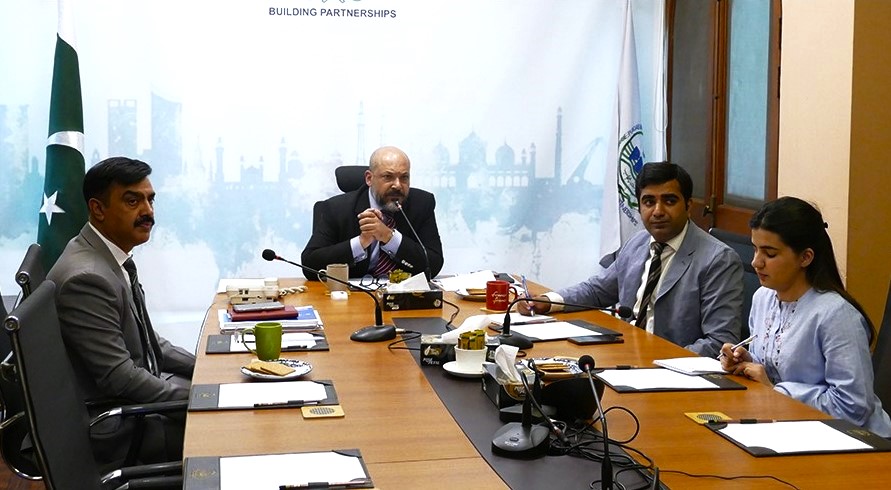ghazi52
THINK TANK: CONSULTANT
- Mar 21, 2007
- 116,975
- 167,150
- Country of Origin

- Country of Residence

Meat Industry of Pakistan
Livestock is considered central component in agricultural sector of Pakistan, provides employment to more than 8 million families.
Meat and meat products holds pivotal significance in meeting dietary requirements serving as major protein source and provide essential vitamins and minerals. Globally, consumer demand is increasing for healthy, hygienic and safe meat and meat products due to growing population, income level and food choices. As, food choices are mainly influenced by region, religion and economic level.
However, religion is one of the major factor to influence the food choices. In this context, halal foods a growing trend, trade estimated to cross USD $ 3 trillion and among this, meat sector contribute about US$ 600 billion. Halal meat and allied products is requirement from Muslims but it is also accepted by non-Muslims due to safe and hygienic nature, nutritious value and superior quality.
Pakistan meat industry is vibrant and has seen rigorous developments during last decade as government also showed interest to boost livestock production and processing facilities to meet increasing local and global demand. The industry has potential to grow owing to its natural animal rearing capability, muslim majority country (96% of total population), improvisation of market and consumer preference towards halal meat.
Current review debates Pakistan meat industry scenario, production trend, global trade as well as future potential with respect to modernization, processing, distribution and trade. The data presented here is useful for meat producers, processors and people involved in export of Pakistani meat and meat based products.
This sector contributes approximately 19.8% in gross domestic product (GDP) and employer absorbing 42.3% of the country’s total labor force. Livestock contributes about 58.6% to agriculture value added and 11.6% to overall GDP during 2016 compared to 56.4% and 11.7% in corresponding last year. The gross value addition from livestock at constant price factor has elevated from Rs. 1247 billion in 2015 to Rs. 1292 billion in 2016, exhibiting a growth of 3.63%.
As other segments and sub-sectors of agriculture are suffering from saturation and slight unproductivity. However, this sector is constantly registering at an optimistic real growth rate at the rate of 4%, annually. Livestock sector also yields an enormous range of by-products especially leather whose export, earned billions of dollars for Pakistan and the country listed as 3rd largest export after cotton and rice (GOP, 2015).
There are numerous factors involved in evolving the prospects of livestock and animal husbandry including large cattle populations, huge agricultural raw materials to be used as feed and fodder, and large scale meat slaughtering and processing plants (Younas and Yaqoob, 2005). In Pakistan, livestock population mainly comprises of cows, buffaloes, goats, sheep, poultry and camel.
The quality livestock gene pool in Pakistan depending on reproduction, weight, milk and meat are Nili-Ravi & Kundi breeds of buffalos, Red Sindhi and Thari breeds of cows, Kajli, Thali, Kooka and Dumbi breeds of sheep and Kamori, Bari, and Teddy breeds of goats. Among these, Thari cow is especially well-known for rapid weight gain (Sarwar et al., 2002).
Meat consumption is the inclusion of meat and meat products in the diet, influenced by culture, economic status and religious norms. Among these, religion is considered as vital component and household income has positive correlation to meat consumption. This fact describes the higher per capita meat consumption by developed countries than that of developing ones. Also, culture, availability of meat and food choices affects the cuisine of people as evident from Israel and south American countries, consume relatively higher quantity of meat. The meat growth is also mainly influenced by income status and population growth, especially in countries with large middle classes like Asia, Latin America, and Middle East.
However, developed countries data showed increasing meat demand but at a slower rate due to the fact they have already reached the saturartion level than that of developing world. It has been projected that global annual per capita meat consumption is expected to reach 35.3 kg retail weight equivalent (r.w.e.) by 2025 showing 1.3 kg r.w.e. increase compared to base period. However, this additional demand will be contributed mainly from poultry due to availability, cheaper price, shorter production time and convenient processing behavior (OECD-FAO agriculture outlook, 2016). Pakistan per capita meat consumption in 2000 was 11.7 kg that was increased to 13.8 and 14.7 kg in 2006 and 2009, respectively.
Additionally, current per capita meat consumption has reached to 32 kg that is further expected to reach 47 kg by 2020 (Table 1). However, urbanization, economic growth, industrialization as well as eating pattern resulting increased per capita meat in the future years that will also generates higher demand for meat and allied products (Chartsbin, 2017). The dietary awareness to population has also played key role in shifting preferences to consume meat and its products.
Pakistan having rich traditions and cultural festivities is also adding more demand for meat and meat products during whole year and this demand further rises significantly during festive season. To cope up this growing demand, government as well as meat industry are now concentrating to meet requirements by providing sufficient, healthy and quality produce, both fresh and processed products (GOP, 2016).
Furthermore, consumer awareness is pushing meat industry and regulating agencies to keep an eye on quality of meat, safety assurance, animal health and welfare as well as precise traceability (Steinfeld et al., 2006).
Pakistan has capability to become international competitor in halal meat industry by contributing its red meat business as demand for beef is mounting. Pakistan being located in the region with vast and varying atmosphere during all the year, has an extensive scope of cattle and goat farming due to availability of resources like land, agriculture background pastures, Muslim majority population as well as intermediate zones of the country. In Pakistan, goat, buffalo, cattle and sheep population has been estimated as 45.74, 23.47, 24.11 and 15.03 million, respectively for year 2016, while a total number of 16,986,280 livestock animals were produced in Pakistan in 2015 (FAO, 2015).
Moreover, different meat types including beef, mutton and poultry production increased from 1.711, 0.616 and 0.767 million tons in 2010-11 to 2.017, 0.686 and 1.177 million tons in 2015-16, correspondingly (Economic Survey of Pakistan, 2016). Goat production showed a rise from 66.6 million in 2014 up to 68.4 million in 2015 (Fig. 1). Similarly, buffalo meat production increased to 35.6 million in year 2015 from 34.6 million in 2014. Likewise, cattle production has also showed consistent increase year by year making up to 41.2 million in 2015 (Noor, 2015).
Trends in meat production during the last decade in Pakistan. (Economic Survey of Pakistan 2015-16, FAO - Fisheries and Aquaculture Information and Statistics Branch)
The demand for meat products and ready to eat meat is showing a consistent increase during the last decade. This stagnant demand is pushing meat industry to produce more conventional meat product (Troy and Kerry, 2010). In Pakistan, people are opting to urban lifestyle, which makes processed products more popular than fresh due to factors like convenience, time constraint, and energy requirement.
A large scale of meat industry is producing conventional convenience meat products like kababs, nuggets, samosas and patties etc. to meet consumer as well as restaurant/hotels demands. However, some new provision of this industry includes meat powder, soy based meat and flavored meat products.
A number of professional private meat processing companies have entered in meat processing in addition with old brand like K&N with trade approval and compliance to high standards by independent third parties such as K&N’s, Sufi group, Seasons foods, Pk Livestock, Zenith, Syed traders, Abedin international, Euro Premium meat Peshawar, Meat one, Tazij meat, Anis associates, the organic meat company, ever fresh meat, Katco international, Snow king fresh & frozen foods Karachi, and Tata best food are few big players of meat processing, product development and meat export from Pakistan to world. Recently, Big birds, Fauji Meat Ltd., Al Shaheer Corporation with broader products and have entered and started their production of halal meat trade at local and international level to cope up the increasing demand.
www.ncbi.nlm.nih.gov
Livestock is considered central component in agricultural sector of Pakistan, provides employment to more than 8 million families.
Meat and meat products holds pivotal significance in meeting dietary requirements serving as major protein source and provide essential vitamins and minerals. Globally, consumer demand is increasing for healthy, hygienic and safe meat and meat products due to growing population, income level and food choices. As, food choices are mainly influenced by region, religion and economic level.
However, religion is one of the major factor to influence the food choices. In this context, halal foods a growing trend, trade estimated to cross USD $ 3 trillion and among this, meat sector contribute about US$ 600 billion. Halal meat and allied products is requirement from Muslims but it is also accepted by non-Muslims due to safe and hygienic nature, nutritious value and superior quality.
Pakistan meat industry is vibrant and has seen rigorous developments during last decade as government also showed interest to boost livestock production and processing facilities to meet increasing local and global demand. The industry has potential to grow owing to its natural animal rearing capability, muslim majority country (96% of total population), improvisation of market and consumer preference towards halal meat.
Current review debates Pakistan meat industry scenario, production trend, global trade as well as future potential with respect to modernization, processing, distribution and trade. The data presented here is useful for meat producers, processors and people involved in export of Pakistani meat and meat based products.
Introduction
Livestock sector plays a critically vital role in the agricultural based economy of Pakistan. It is extremely labor-intensive and includes a large part of rural work force. Pakistan is a diversified, ethnic as well as Muslim majority country, housing a population estimated 195 million comprising of Muslims, Christians, Hindus and other minorities. The agriculture sector in Pakistan is backbone of economy, provides raw materials to run the different industries and helps in reducing poverty.This sector contributes approximately 19.8% in gross domestic product (GDP) and employer absorbing 42.3% of the country’s total labor force. Livestock contributes about 58.6% to agriculture value added and 11.6% to overall GDP during 2016 compared to 56.4% and 11.7% in corresponding last year. The gross value addition from livestock at constant price factor has elevated from Rs. 1247 billion in 2015 to Rs. 1292 billion in 2016, exhibiting a growth of 3.63%.
As other segments and sub-sectors of agriculture are suffering from saturation and slight unproductivity. However, this sector is constantly registering at an optimistic real growth rate at the rate of 4%, annually. Livestock sector also yields an enormous range of by-products especially leather whose export, earned billions of dollars for Pakistan and the country listed as 3rd largest export after cotton and rice (GOP, 2015).
There are numerous factors involved in evolving the prospects of livestock and animal husbandry including large cattle populations, huge agricultural raw materials to be used as feed and fodder, and large scale meat slaughtering and processing plants (Younas and Yaqoob, 2005). In Pakistan, livestock population mainly comprises of cows, buffaloes, goats, sheep, poultry and camel.
The quality livestock gene pool in Pakistan depending on reproduction, weight, milk and meat are Nili-Ravi & Kundi breeds of buffalos, Red Sindhi and Thari breeds of cows, Kajli, Thali, Kooka and Dumbi breeds of sheep and Kamori, Bari, and Teddy breeds of goats. Among these, Thari cow is especially well-known for rapid weight gain (Sarwar et al., 2002).
Meat consumption is the inclusion of meat and meat products in the diet, influenced by culture, economic status and religious norms. Among these, religion is considered as vital component and household income has positive correlation to meat consumption. This fact describes the higher per capita meat consumption by developed countries than that of developing ones. Also, culture, availability of meat and food choices affects the cuisine of people as evident from Israel and south American countries, consume relatively higher quantity of meat. The meat growth is also mainly influenced by income status and population growth, especially in countries with large middle classes like Asia, Latin America, and Middle East.
However, developed countries data showed increasing meat demand but at a slower rate due to the fact they have already reached the saturartion level than that of developing world. It has been projected that global annual per capita meat consumption is expected to reach 35.3 kg retail weight equivalent (r.w.e.) by 2025 showing 1.3 kg r.w.e. increase compared to base period. However, this additional demand will be contributed mainly from poultry due to availability, cheaper price, shorter production time and convenient processing behavior (OECD-FAO agriculture outlook, 2016). Pakistan per capita meat consumption in 2000 was 11.7 kg that was increased to 13.8 and 14.7 kg in 2006 and 2009, respectively.
Additionally, current per capita meat consumption has reached to 32 kg that is further expected to reach 47 kg by 2020 (Table 1). However, urbanization, economic growth, industrialization as well as eating pattern resulting increased per capita meat in the future years that will also generates higher demand for meat and allied products (Chartsbin, 2017). The dietary awareness to population has also played key role in shifting preferences to consume meat and its products.
Pakistan having rich traditions and cultural festivities is also adding more demand for meat and meat products during whole year and this demand further rises significantly during festive season. To cope up this growing demand, government as well as meat industry are now concentrating to meet requirements by providing sufficient, healthy and quality produce, both fresh and processed products (GOP, 2016).
Furthermore, consumer awareness is pushing meat industry and regulating agencies to keep an eye on quality of meat, safety assurance, animal health and welfare as well as precise traceability (Steinfeld et al., 2006).
Pakistan has capability to become international competitor in halal meat industry by contributing its red meat business as demand for beef is mounting. Pakistan being located in the region with vast and varying atmosphere during all the year, has an extensive scope of cattle and goat farming due to availability of resources like land, agriculture background pastures, Muslim majority population as well as intermediate zones of the country. In Pakistan, goat, buffalo, cattle and sheep population has been estimated as 45.74, 23.47, 24.11 and 15.03 million, respectively for year 2016, while a total number of 16,986,280 livestock animals were produced in Pakistan in 2015 (FAO, 2015).
Moreover, different meat types including beef, mutton and poultry production increased from 1.711, 0.616 and 0.767 million tons in 2010-11 to 2.017, 0.686 and 1.177 million tons in 2015-16, correspondingly (Economic Survey of Pakistan, 2016). Goat production showed a rise from 66.6 million in 2014 up to 68.4 million in 2015 (Fig. 1). Similarly, buffalo meat production increased to 35.6 million in year 2015 from 34.6 million in 2014. Likewise, cattle production has also showed consistent increase year by year making up to 41.2 million in 2015 (Noor, 2015).
Trends in meat production during the last decade in Pakistan. (Economic Survey of Pakistan 2015-16, FAO - Fisheries and Aquaculture Information and Statistics Branch)
The demand for meat products and ready to eat meat is showing a consistent increase during the last decade. This stagnant demand is pushing meat industry to produce more conventional meat product (Troy and Kerry, 2010). In Pakistan, people are opting to urban lifestyle, which makes processed products more popular than fresh due to factors like convenience, time constraint, and energy requirement.
A large scale of meat industry is producing conventional convenience meat products like kababs, nuggets, samosas and patties etc. to meet consumer as well as restaurant/hotels demands. However, some new provision of this industry includes meat powder, soy based meat and flavored meat products.
A number of professional private meat processing companies have entered in meat processing in addition with old brand like K&N with trade approval and compliance to high standards by independent third parties such as K&N’s, Sufi group, Seasons foods, Pk Livestock, Zenith, Syed traders, Abedin international, Euro Premium meat Peshawar, Meat one, Tazij meat, Anis associates, the organic meat company, ever fresh meat, Katco international, Snow king fresh & frozen foods Karachi, and Tata best food are few big players of meat processing, product development and meat export from Pakistan to world. Recently, Big birds, Fauji Meat Ltd., Al Shaheer Corporation with broader products and have entered and started their production of halal meat trade at local and international level to cope up the increasing demand.
An Insight of Meat Industry in Pakistan with Special Reference to Halal Meat: A Comprehensive Review
Livestock is considered central component in agricultural sector of Pakistan, provides employment to more than 8 million families. Meat and meat products holds pivotal significance in meeting dietary requirements serving as major protein source and provide ...www.ncbi.nlm.nih.gov











